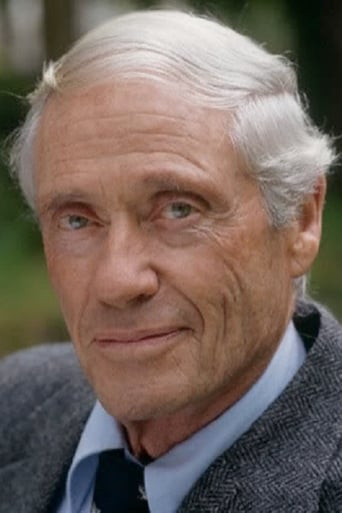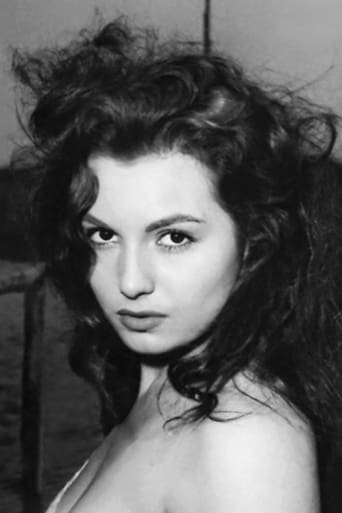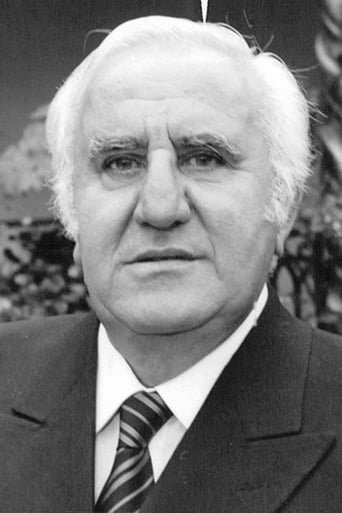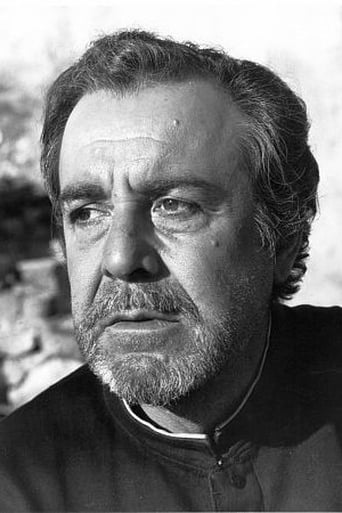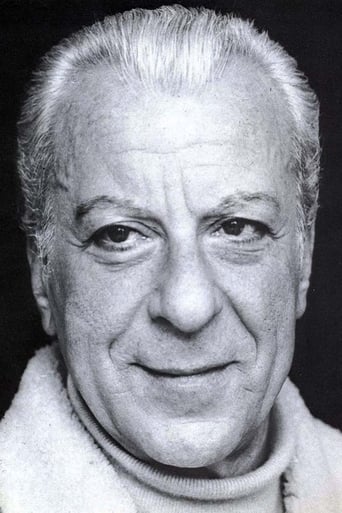Dorathen
Better Late Then Never
Borgarkeri
A bit overrated, but still an amazing film
Afouotos
Although it has its amusing moments, in eneral the plot does not convince.
Hayleigh Joseph
This is ultimately a movie about the very bad things that can happen when we don't address our unease, when we just try to brush it off, whether that's to fit in or to preserve our self-image.
Kirpianuscus
for reflect, "ad usum Delphini", a period, a life and an art. for the mix of sadness and romanticism. for the work of Mell Ferrer. without be a great film, giving the impression to be part of the so many frescoes of the Hollywood from the same period, it is nice and seductive and noble in its generous message about compromises, glory, politic and Church. and this represents a precious virtue for define it as an oasis. for atmosphere and for the grace of details. and, sure, for something special. like an old scent . so, a beautiful film.
JohnHowardReid
Copyright 31 December 1965 by Produzioni Artistiche Internationale/Arco Film (Rome)/Les Films du Siecle (Paris). An Italian/French co-production, filmed in Toledo, Spain. Released through 20th Century-Fox Film Corp. New York opening at the 68th Street Playhouse: 23 May 1967. U.S. release: 26 October 1966. U.K. release: floating from January 1967. Sydney opening at the Town. 8,492 feet. 94 minutes.SYNOPSIS: 1576: Arriving in Toledo from Italy to execute an altarpiece, the painter Domenico Theotocopulos, known as El Greco, soon finds fame and fortune, winning the favor not only of the Church but of the King. COMMENT: Easily the best film biography of a painter since "Rembrandt". Admittedly, the scriptwriters were able to give themselves a freer hand than usual by our almost complete lack of knowledge of the painter's life. But those details we do know are faithfully interpreted in the film. And the make-up is so good that some of the portraits seem to have stepped alive from El Greco's canvasses. The most striking example, of course, is that of Cardinal Nino de Guevara played by Mario Feliciani. Viewed from every perspective, the make-up is absolutely faultless. And there are others: the portraits in the "Burial of Count Orgaz" seem to be reflected on the screen, the resemblance of Brother Felix is more than passable; and Fernando Rey's Philip II is an astonishing likeness.But even more striking than these character impositions are the fantastically exquisite costumes and the incredibly dazzling sets. Director Salce has a fine eye for striking pictorial compositions. He's one of the few directors who used the CinemaScope screen creatively and with imaginative artistry. Who could forget El Greco's spacious studio, littered with all the wondrous impedimenta of his craft including finished and nascent masterpieces lying higgledy-piggledy in odd corners among all sorts of odds and ends?Other marvelous images: the staggeringly baroque ornamentation of the cathedral as the camera tracks unceasingly up from the high altar over hundreds and hundreds of superbly carved bas-reliefs, their exquisite detail invisible to the congregation below; the stark, white-washed walls of the inquisitorial hall thrown into dramatic contrast with lines of black-robed and hooded prosecutors.All these so real yet so exotic images are superbly captured through the painstaking magic of ace color cinematographer Leonida Barboni. Rarely has the capacity of the wide CinemaScope screen been used to such advantage or filled with such harmonious compositions.Most of the actors are Italian, but their dubbing has been much better performed than usual, under the guidance of dialogue director John Francis Lane. Leo Genn, who dubs the voice of Brother Felix, is outstanding. Mel Ferrer, who appears a little ill at ease in the opening moments, warms to the part most adeptly as the plot progresses. In fact this role is probably his best ever.Technical credits are a tribute to Ferrer's efforts behind the camera. Ennio Morriconi — yet to make his reputation with the Dollar westerns — has contributed a richly atmospheric score, whilst the mysterious Fred Burnley's film editing is admirably swift and fast- paced. (Not exactly a name to conjure with, Burnley's other films are a nondescript bunch including Tarzan's Three Challenges, Disk-O- Tek Holiday and The Girl Getters).Although the movie obviously cost millions to make — and it's all money most intelligently and creatively spent — "El Greco" was not a resounding box-office success. For one thing, the personality of the historical El Greco is too faithfully portrayed to be appreciated by a general audience. A moody and temperamental man, given to sudden emotional outbursts, but mostly eating humble pie and currying favor with the nobility, always deferring to their suggestions; and painting, for the most part, within rigid ecclesiastical rules. His character is by no means a wholly sympathetic one with which the audience can identify. And the same applies to all the other characters. Even the comic servant is revealed as a despicable coward. And the story itself, with its ghastly conclusion, is scarcely one to be endorsed by a mass audience. It is sad to think that the price of artistic integrity is mass audience alienation, but there it is. We may have to wait many years for another biography of its worth.
Armand
About an artist. And about a slice of Spain history. A love story and definition of art against prejudices. In same time,delicate description of stranger condition. A Hollywood production, with same recipes of "ad usum delphini" history, glamor and unhappy love, with a magnificent Mell Ferrer and sweet colors. Seed of nostalgia, chair for rediscover of past, few flavor of childhood, with great heroes and nice adventures, "El Greco" is form of a fado. Portrait of an era, circle of magic gestures and hope, victory of a not-yet born Don Quijote. It is not a masterpiece. But it is more that. An escape. And lucky coin. Window. To a world who believes in everyone.
ccmiller1492
"El Greco" is the engrossing story of the great artist's years in 16th century Toledo. With the preponderance of films dealing with English and French history in cinema, this film gives a much needed, rare and welcome glimpse of the Spanish culture's rich history. Ferrer accomplished an exceptional feat in producing this film and acting the title role. It is obviously a labor of love, with the costumes, settings, music, and events beautifully evocative. Having seen many of the works ("The Death of Count Orgaz", etc.) and the artist's Toledo workshop in person, I can vouch for the period authenticity. Some of the events will come as a surprise when the religious and mystical content of his work is considered. As the film portrays, El Greco ran afoul of the Inquisition and later produced some of his greatest works out of his greatest anguish. A must for lovers of art and Spanish history. Will we ever see a comparable film about the life of Velazquez, another of the many immortal masters of art this great nation has produced?
